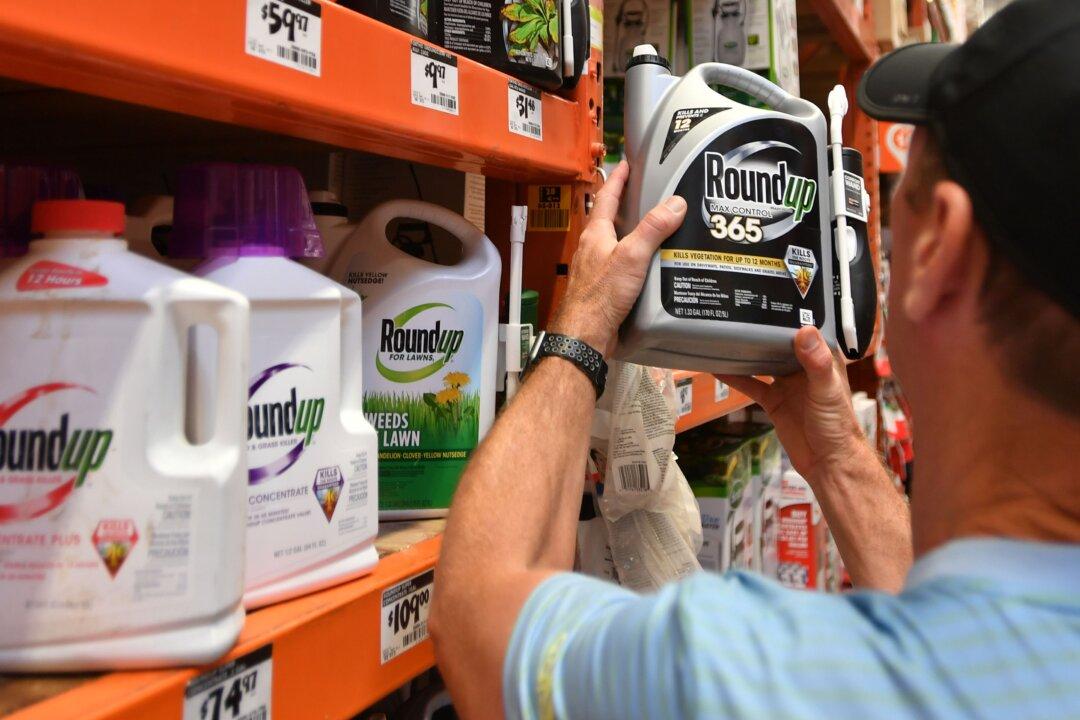Biotech firm Monsanto was ordered by a Pennsylvania jury to pay $175 million in damages to a man who allegedly suffered from cancer after using the company’s weed killer for two decades.
On Oct. 27, jurors in the state court in Philadelphia awarded plaintiff Ernie Caranci, 83, $25 million in actual damages and $150 million in punitive damages over claims that he developed non-Hodgkin’s lymphoma after using Monsanto’s weed killer “Roundup” for 20 years in his garden. Non-Hodgkin’s lymphoma is a type of cancer that forms in the lymph system.





